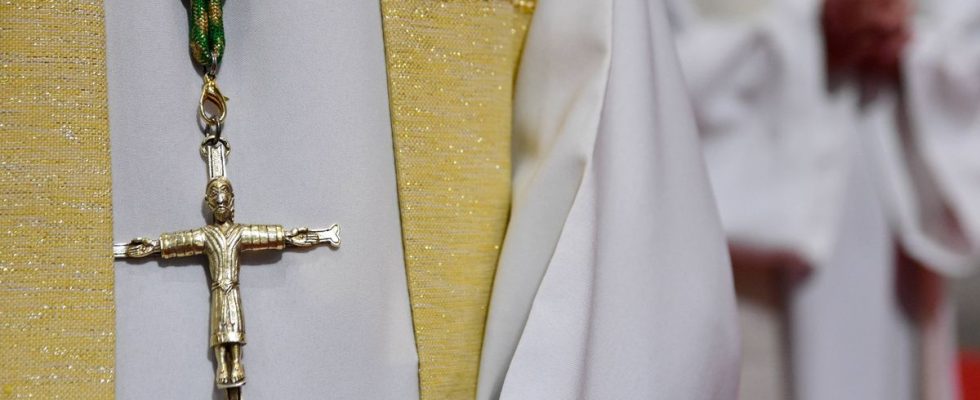The announcement must still be made official by the Vatican. But according to Releasethe controversial bishop of Var, Dominique Rey, on an ejection seat since an internal investigation into his diocese of Fréjus-Toulon, would ultimately be seconded and not pushed into resignation. 20 minutes takes his pilgrim’s staff to explain the situation in Var to you.
Why is this diocese in the crosshairs of the Vatican?
A seminary which ordains priests without paying too much attention to training or the aftermath, to the point of sometimes losing all trace of new priests. A policy of welcoming new religious communities, some traditionalists or suspected of sexual violence and sectarian excesses. This is essentially what placed the Var diocese in the sights of the Roman authorities.
In a press release dated June 26, 2022, Bishop Dominique Rey, head of the diocese of Fréjus-Toulon, acknowledges having “may have made errors of discernment” in welcoming said communities. “The place of the traditionalist world in our seminary and in the diocese also constitutes one of the sensitive points noted by the Roman congregations,” the prelate also writes. A form of “mea culpa” from one of the most conservative bishops of the French episcopate, while awaiting the Roman verdict. Because in an extremely rare occurrence, the Vatican suspended that year the ordination of priests in training at the Var seminary. And ordered an internal investigation.
What option will undoubtedly be chosen to emerge from the crisis?
The imminent outcome of the crisis has been expected since the end of May, the date on which the thick file of the report desired by Pope Francis was sent to Rome: more than 20 kg of documents collected on this diocese held by Mgr Dominique Rey for twenty-two years, and which has 250 priests.
Nothing has leaked about the content of this audit carried out by the Archbishop of Dijon, Mgr Antoine Hérouard, and the prelate Joël Mercier. Not even the diocese of Fréjus-Toulon was able to take note of it, according to our information. After this investigation, several choices presented themselves to Pope Francis: the appointment of a new bishop, the appointment of an auxiliary, or even that of a coadjutor.
It is this last option that the Vatican would have chosen according to Release, which gives both the name of the person expected – the already reigning bishop of Châlons-en-Champagne, François Touvet – but which above all specifies that the coadjutor would be “endowed with special powers”. He would thus have “the upper hand over finances, the management of priests and religious communities”, when Mgr Rey would preside over religious ceremonies, this during the four years separating him from retirement (he is now 71 years old) .
How to interpret this “ White smoke » ?
Appointing a “coadjutor” is in fact nothing exceptional, according to various specialists we interviewed. This is the case when a bishop is close to retirement, the Church thus designates his successor. The devil is more in the details: it is not very logical for a bishop already in charge of a diocese to be appointed, which is the case for François Touvet if this option were to be confirmed. And even less logical that this person has “special powers”. “In the Vatican, we manipulate the law a lot according to the result we want,” euphemizes a connoisseur of religions, for whom this non-choice, in some way, gives “the impression of wanting to punish the bishop but not too much “.
The diocese of Fréjus-Toulon did not wish to react until the information is confirmed by the Conference of Bishops of France, which according to Release has been aware, since October 9, of the Pope’s decision to appoint François Touvet as coadjutor. According to the daily, the latter has already made contact with religious leaders in Var and is “determined to carry out his mission of ridding the diocese of its problems”. His military connections – he is a reserve officer – and his conservative profile probably do not displease the local Catholic right either. After two blank years, the ordinations of priests could in any case resume.

